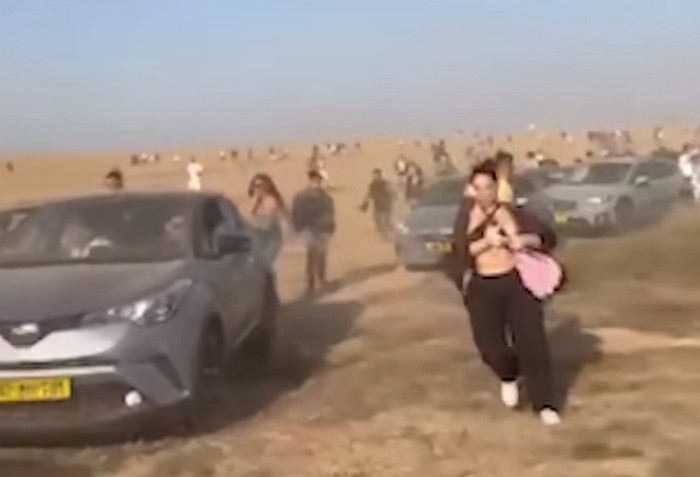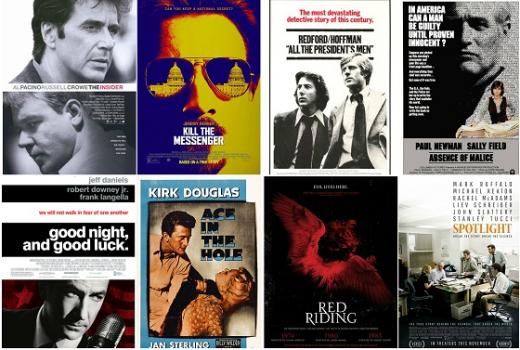 It is quite clear that the authorities in Serbia have a very negative attitude towards freedom of the press, as well as that there are numerous examples of censorship and self-censorship in the media, says Christian Mihr, Executive Director of Reporters Without Borders, one of the authors of research on the state of media freedom in 180 countries in the world, for Cenzolovka
It is quite clear that the authorities in Serbia have a very negative attitude towards freedom of the press, as well as that there are numerous examples of censorship and self-censorship in the media, says Christian Mihr, Executive Director of Reporters Without Borders, one of the authors of research on the state of media freedom in 180 countries in the world, for Cenzolovka
Serbian authorities smother critical, free reporting and influence editorial policy by pressuring the media, most often financially, though advertisements. The censorship is not a direct one, nor transparent, but it can easily be shown to exist. Serbia is not unique in that respect, and we have a similar situation in various states in the world – said Christian Mihr, Executive Director of Reporters without Borders (RSF), for Cenzolovka.
Mihr emphasized that Reporters without Borders had no dilemma that the development of media situation in Serbia was “sad” and that it most certainly does not lead towards the desired, European goal. The discussion with one of the authors of the research on the condition of media freedom in 180 countries of the world was led at the end of last week in Sofia, during the recess of the conference on reporting from crisis areas organized by the Konrad Adenauer Foundation in Bulgaria.
Serbia is ranked to be the 67th as per the World Press Freedom Index, which is a fall of 13 positions compared to the previous report.
Several examples have shown that the Prime Minister of Serbia is very sensitive to criticism, including critically raised questions. For example, the journalist Natalija Miletić posed a series of critical questions to the Prime Minister Vučić at the conference in Berlin. This was followed by a campaign led against her in a part of Serbian press and threats directed to her. Websites writing about the plagiarized doctoral dissertation of the Minister of Interior were being crashed as well.
Cenzolovka: What does the latest report show regarding the condition of the media, both globally and in Serbia?
Christian Mihr: Globally, a decrease of media freedom seems to be all-present. As far as the Balkans is concerned, a constantly low level of media freedom was noticed in Macedonia, Bulgaria, Romania, and Serbia. Nowhere in the Balkans was real progress in this field detected, except perhaps in Croatia, where certain progress was noted. Serbia really fell significantly on our scale, for 13 positions. This is disappointing for an EU membership candidate country.
During the devastating floods last year in Serbia, we witnessed censorship in action in the events where critical writing was launched against the Government of Serbia, on the Internet. We had several cases of deleting critical texts from the Internet, of attacking and blocking portals. For example, one text that was very critical of Vučić disappeared from the Blic website.
C: But Blic repeatedly denied censorship by the Government. Why is this example always cited and why is there no trust in Blic that denies suffering pressures from the Government?
CM: It is not the matter of our trust or lack of it. We believe that the Government pressure is also a possibility in this case, since we have seen that the Government attacked several critical reports commenting their actions during the floods. Based on several examples we know that the Prime Minister of Serbia is very sensitive to criticism, including critically raised questions. For example, journalist Natalija Miletić posed a series of critical questions to the Prime Minister Vučić at the conference in Berlin. This was followed by a campaign led against her in a part of Serbian press and threats directed to her. Websites writing about the plagiarized doctoral dissertation of the Minister of Interior were being crashed as well.. Hence, when considering the overall context of the Serbian media, one may see a very negative relation towards media freedom by the authorities. Likewise, one may see numerous examples of censorship and self-censorship in the media.
Reply to Commissioner Hahn: Media Freedom Must Be a Strict Condition for Serbia
When the European Commissioner Johannes Hahn questioned before journalists, whether the report of Reporters Without Borders on media censorship in Serbia was well documented two days ago, on February 16, in Brussels, , we asked Christian Mihr to comment and provide additional evidence.
CM: The independent media and journalists, who are critically inclined, have found themselves in 2014 under a serious pressure in several cases, despite the pending negotiation process for Serbian accession to the EU. Newspaper texts criticizing the Government were being deleted from the Internet, and independent journalists were receiving threats or were being pressured. Media freedom must be a strict condition for accession of Serbia to the EU.
C: Some other negative examples, unrelated to the floods and the Internet?
CM: Last year a significant increase in the abuse of the media was noted, which also contributed to the fall in our list. These have been documented on our website. This is a poor turn of events since Serbia wants to join the EU, and as a candidate state it must take the importance of journalists’ independency and the need for media freedom more seriously. Journalistic criticism, as shown by Natalija Miletić and other journalists, should be a normal appearance in strong democracies and each Government should tolerate it.
C: The Prime Minister Vučić always gets angry hearing of criticism on the topic of media freedom and he persistently denies censorship in Serbia. We have had the opportunity to see his reaction and attack on Dunja Mijatović from OEBS, the EU ambassador Michael Davenport, as well as Maja Kocijančić, Spokeswoman of the Commissioner for Foreign Affairs. What’s your take on that?
CM: His dislike towards criticism from international or non-governmental organizations is clear. However, we do that to benefit Serbia. Our goal is to increase the level of media freedom globally, including Serbia, and criticism is a normal part of every strong democracy and must be accepted. There is most likely no direct censorship in Serbia. However, there have been documented cases showing indirect pressures, situations where certain media have been asked to publish interviews with certain politicians, have had editorials being submitted to them, and, on the other hand, have had paid advertisements being precisely linked to the publication of such interviews and the method of editing Hence, the censorship is indirect and non-transparent. This is not the case specific for Serbia. We are seeing the same or similar forms of censorship in other countries as well.
There is most likely no direct censorship in Serbia. However, there have been documented cases showing indirect pressures, situations where certain media have been asked to publish interviews with certain politicians, have had editorials being submitted to them, and, on the other hand, have had paid advertisements being precisely linked to the publication of such interviews and the method of editing.
C: The Prime Minister of Serbia was marked as the main interference for media freedom. Is it possible to expect some improvement having in mind his refusal to even admit existence of the problem?
CM: If we were not to believe in that, we would stop playing this role of a “guardian”. We believe that public pressure may lead to changes, and we have positive examples supporting this. The pressure from our organization is not always a crucial one, but in cooperation with other organizations, with the help of public pressure, positive changes have been known to happen. The public pressure alone is naturally not enough. The civil society organizations and journalists should continuously fight for media freedom. There are a lot of brave organizations and journalists in Serbia and in the region who are fighting. I would like to mention our brave colleagues from BIRN, who investigate cases of corruption and report on political problems in the entire region. The combination of public pressure and practical good journalism can lead to positive changes.
C: Who are the partners of Reporters without Borders in Serbia, based on whose reports you rank Serbia?
CM: We have a unique questionnaire, which is the same for all countries and answered by local journalists and experts in all countries from our list. We have groups of journalists, lawyers, university professors and experts who all have different insights into the media situation in each country, but we do not publish their names since in some countries they wish to remain anonymous. We wish to raise awareness of the need for media freedom, to put pressure on the public to improve the situation. The rank of one country depends not only on internal situation in one country, but the shifts of other listed countries. What is important and what is the real indicator of media freedom is the quarter in which the country is ranked, the first, the second or the last one. The list is a tool of our fight and the campaign for media freedom.
http://www.bbc.com/news/world-europe-27676579
http:// www.b92.net/eng/news/politics.php?yyyy=2 014&mm=06&dd=04&na v_id=90559
http://www.dw.de/plagijat-ili-nau%C4%8Dni-rad-dr-stefanovi%C4%87a/a-17678902
http:// balkanist.net/getting-a-phd-in-serbia-has- never-been-easier-the-case-of-minist er-of-internal-affairs-nebojsa-stefa novic/
http://uk.mobile.reuters.com/article/idUKKBN0EE1IG20140603?irpc=932
3. A negative campaign aimed against journalist Natalija Miletić, reporting from Berlin, because of her critical question asked at the press conference of the Prime Minister Vučić and Chancellor Angela Merkel. After this the Serbian Embassy prohibited her to ever contact them, and in the Serbian media she got the front page.
Her article: http://pescanik.net/kako-se-decko-proveo-na-lse-ju/
The attack that followed: http:// www.e-novine.com/srbija/srbija-tema/111604 -Mistina-dojka-vidovito-oko-Peanika. html
4. The article on the Serbian media:
http://newint.org/blog/2014/07/07/serbia-media-censorship/








 Saragusti: Niko sada nije bezbedan. Zločini su jezivi. Novinari su ubijeni dok obavljaju svoj posao
Saragusti: Niko sada nije bezbedan. Zločini su jezivi. Novinari su ubijeni dok obavljaju svoj posao Filmovi o novinarima i za novinare
Filmovi o novinarima i za novinare Silovanje ili cenzura: Na šta to smrdi Pepe le Tvor?
Silovanje ili cenzura: Na šta to smrdi Pepe le Tvor?
Ostavljanje komentara je privremeno obustavljeno iz tehničkih razloga. Hvala na razumevanju.